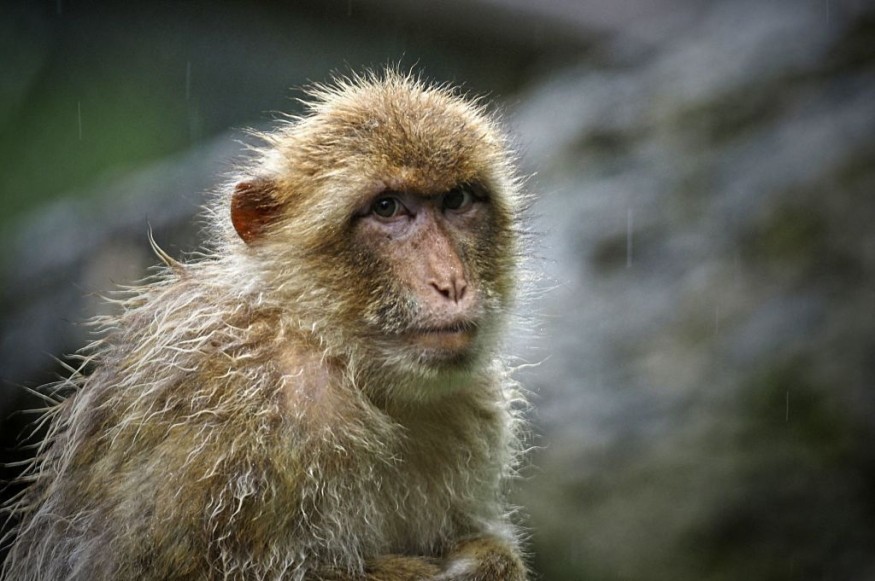According to a growing social media trend, animals are being mocked and tortured in videos, an animal welfare coalition has discovered.
According to a report released on July 5 by Asia for Animals Social Media Animal Cruelty Coalition (SMACC), 200 videos of animals being tortured by teasing were shared on TikTok, Facebook, Instagram, and YouTube between February and May of this year.
Among the videos of tortured animals, one fad showed individuals spraying lemon juice at animals while making loud noises and donning ominous masks to frighten them.
Even young macaques were filmed in uncomfortable attire that restricted their moevements. In the video, individuals are seen filming as they feed monkeys that they could not reach due to clothing.

Content that promotes animal cruelty is forbidden on all social media sites.
According to YouTube's policy on violent and graphic content, the site does not allow violent or gory content intended to shock or disgust viewers, or content encouraging others to commit violent acts.
Animal-to-animal fight videos and human torturing or abusing live animals are also prohibited, according to Meta, the company that owns Facebook and Instagram. Videos showing humans torturing or abusing live animals are also prohibited if there is no explicit context related to manufacturing, food consumption, hunting, processing, or preparation.
TikTok also forbids content that shows animal cruelty, tortured animals, mutilated, dismembered, charred, or burned remains, as well as animal slaughter or other non-natural deaths of animals.
The video is taken down if the social media platforms determine that the creator violates the content policies.
Meta
According to a spokesperson for Meta, Newsweek, the company removes posts that show animal cruelty from its platforms when they are discovered. The company urges users who encounter this content to report it using the tools available on our platforms so that our teams can look into it and take appropriate action.
TikTok
According to a TikTok spokesperson, Abhorrent animal abuse has no place on the platform. In their community guidelines, the company makes it clear that they forbid any content depicting animal cruelty on their platform and that they will take action against any such content or accounts.
YouTube
YouTube receives 720,000 hours of video uploads each day. 95 million images and videos are shared daily on Instagram.
It is not the first time that this issue has come up. In recent years, numerous videos of people torturing animals have appeared on video-sharing websites, many of which have remained live for months and received a lot of views and interactions.
Read also : South Carolina Police Arrests Animal Rescue CEO and Director in an Ironic Case of Animal Cruelty
SMACC
According to the SMACC, the social media sites are not doing enough to remove these videos.
To combat the growing amount of animal cruelty content on the platforms, the coalition is collaborating with Meta. The coalition expressed its hope that Meta will follow its advice and take "swift action." However, the social media platforms have thus far "taken little action" in response to a 2021 report from the coalition, which discovered an increase in the number of successful animal content videos.
In a press release, SMACC said that all but one company have not yet responded, and the coalition claims that even getting in touch with the platforms has been very challenging.
Alan Knight, president of International Animal Rescue, a member organization of the coalition, said in a press release that Social media behemoths cannot continue to turn a blind eye to posts depicting the cruel treatment of animals on their platforms. By watching, liking, and sharing these videos, a sizable global audience is sustaining the cruelty, whether knowingly or unknowingly, and it must stop.
Knight went on to say that most people would find the videos intolerable to watch because using teasing as a form of torture as described in this report is disgusting. It is unacceptable that platforms like TikTok, Facebook, Instagram, and YouTube are ignoring their obligations in this regard. Animals are purposefully tortured and even killed for human amusement, and those who have the power to stop it have a moral obligation to do so as soon as possible, Newsweek reports.
Related article : Lollypop Farm Seizes 800 Animals From Property, a Local Animal Exhibitor Is Arrested
© 2025 NatureWorldNews.com All rights reserved. Do not reproduce without permission.





